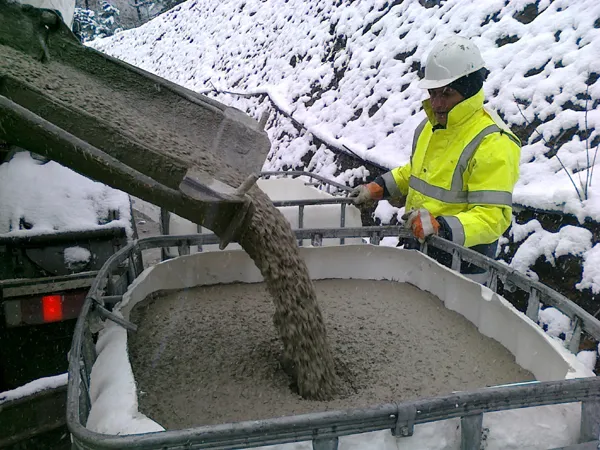BASF claims that its latest innovation will help improve efficiency in tunnel construction operations. Developed by BASF's Construction Chemicals division the new Crystal Speed Hardening system (CSH) is an advanced admixture technology aimed directly at the tunneling market.
February 14, 2012
Read time: 2 mins

The CSH concept uses a new hardening accelerator, X-SEED, to boost early strength development by modifying the action mechanism of cement hydration. X-SEED is made of suspended CSH-seeding crystals: the material added is of the same nature as the final hydration products from the cement reaction with water. As the suspended crystals are considerably smaller than microsilicas, the surface is much more beneficial for accelerating the crystal growth during the early stages of concrete hardening. The product has already been tried and tested in a number of tunneling trials. The abbreviation CSH also refers to calcium silicate hydrates; the cement hydration products responsible for the compressive strength of concrete. Hydration speed depends on the chemical composition of clinker and other cementitious materials. To simplify the science, by using BASF's X-SEED admixtures, a liquid suspension of synthetic crystal seeds on the nano scale, the growth of calcium silicate hydrate crystals is significantly accelerated.









